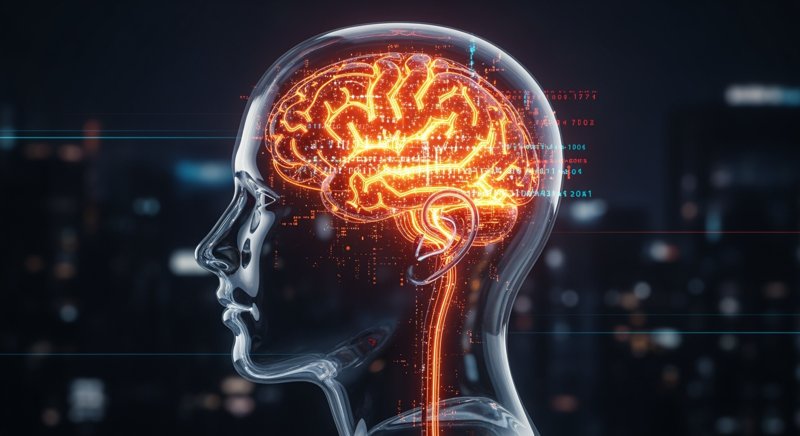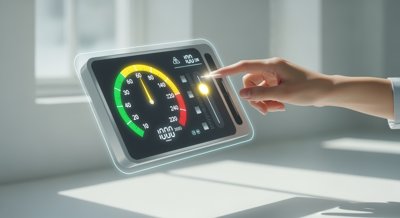🤯 Mental Health in a Big City: A Survival Guide for Your 'Savannah Brain'

Our brain is a masterpiece of evolution, a finely tuned instrument designed over millions of years for survival on the savannah. It’s wired to detect the snap of a twig, to remember the location of a fruit tree, and to navigate the complex social dynamics of a small, tight-knit tribe. And now, we’ve taken this “savannah brain” and dropped it into the concrete jungle.
The modern metropolis—with its constant noise, perpetual light, information overload, and seas of anonymous faces—is an environment for which we are profoundly ill-equipped. The resulting friction between our ancient biology and our modern habitat is one of the great unseen challenges to our well-being. This is a survival guide for your brain in the big city.
The Urban Brain Under Siege: What Neuroscience Reveals
The feeling of being “stressed out” by city life isn’t just in your head; it’s in your brain’s very structure and function. Neuroscientists have discovered that urban living has a measurable impact on key neural circuits.
1. The Overactive Alarm System: The Amygdala
Studies show that the amygdala, the brain’s fear and threat-detection center, is consistently more active in city dwellers compared to their rural counterparts. The constant, low-level stressors of the urban environment—traffic, sirens, crowds—keep this alarm system on a hair trigger. This chronic state of heightened alert contributes to the higher rates of anxiety disorders seen in urban populations.
2. The Offline CEO: The Prefrontal Cortex
The prefrontal cortex (PFC) is the “CEO” of the brain, responsible for executive functions like emotional regulation, focus, and decision-making. Urban living, particularly the relentless stream of notifications and digital distractions, depletes the PFC’s resources. This leads to a state of cognitive fatigue, making it harder to concentrate, manage impulses, and regulate our moods. The constant social stress of navigating a crowded, anonymous environment also strains the PFC’s ability to manage social cues and emotions.
3. The Disrupted Clock: Circadian Rhythms
Our internal biological clock is synchronized by the natural cycle of light and dark. The 24/7 light pollution of the city disrupts this ancient rhythm, suppressing the production of melatonin, the hormone of sleep. The result is a population that is chronically sleep-deprived. Poor sleep quality directly impairs the PFC’s function and amplifies the amygdala’s stress response, creating a vicious cycle of fatigue and anxiety.
Red Flags: When “City Stress” Becomes Something More
It’s easy to dismiss the mental toll of urban life as “normal.” But it’s crucial to recognize when the strain is tipping over into a clinical issue.
- Anhedonia: A loss of pleasure in activities you once enjoyed.
- Persistent Sleep Disturbances: Chronic difficulty falling asleep, staying asleep, or feeling unrested upon waking.
- Cognitive Decline: Noticeable problems with memory, focus, or decision-making.
- Social Withdrawal: Actively avoiding social contact, even with friends and family.
- Somatic Symptoms: Unexplained physical ailments like chronic headaches, digestive issues (IBS is a classic), or persistent muscle tension.
If these flags resonate with you, it’s a sign that your “savannah brain” is struggling to cope. It’s not a sign of weakness; it’s a sign of a biological mismatch.
The Urban Survival Kit: Evidence-Based Strategies
The good news is that we can consciously create a more brain-friendly micro-environment within the macro-environment of the city.
1. Practice Digital Hygiene
Your attention is a finite resource. Protect it fiercely.
- Curate Your Notifications: Turn off all but the most essential alerts.
- Schedule “Digital Detox” Periods: Create sacred, screen-free time, especially in the first hour after waking and the last hour before bed. This allows your brain’s natural rhythms to reset.
- Practice Mindful Consumption: Engage with digital media with a purpose, don’t just passively scroll.
2. Hack Your Light Environment
Take control of your circadian rhythm.
- Morning Light: Get at least 15-20 minutes of direct sunlight exposure as early in the day as possible. This is the most powerful signal to anchor your internal clock.
- Evening Darkness: Dim the lights in your home in the evening. Use “night mode” on all your devices. Invest in blackout curtains for your bedroom.
3. The Science of “Nature Therapy”
This is one of the most powerful antidotes to urban stress. Studies have shown that even a short walk in a natural environment can have profound effects on the brain. A landmark study found that a 90-minute walk in nature decreased activity in the subgenual prefrontal cortex, a brain area associated with rumination and negative thought loops.
- Schedule “Green Time”: Make regular, non-negotiable appointments to spend time in a park or other green space.
- Bring Nature In: Even having plants in your home or office can have a measurable stress-reducing effect. A 2025-2026 meta-analysis further confirmed that as little as 20 minutes of green space exposure per week is associated with measurably lower cortisol levels in urban populations.
4. Rebuild Your “Tribe”
Combat the anonymity of the city by actively cultivating deep social connections.
- Prioritize Quality over Quantity: One meaningful, face-to-face conversation is worth more than a hundred social media interactions.
- Join a Community: Find a group that shares your interests, whether it’s a sports league, a book club, or a volunteer organization.
5. Don’t Hesitate to Seek Professional Help
If you are struggling, seeking help from a therapist or psychiatrist is an act of strength and self-awareness. It’s a recognition that your brain, like any other organ, sometimes needs expert care.
Living in a big city is a marathon. You cannot sprint indefinitely. By understanding the unique pressures this environment places on your ancient brain, you can begin to implement intelligent, science-backed strategies to not just survive, but thrive in the concrete jungle.





